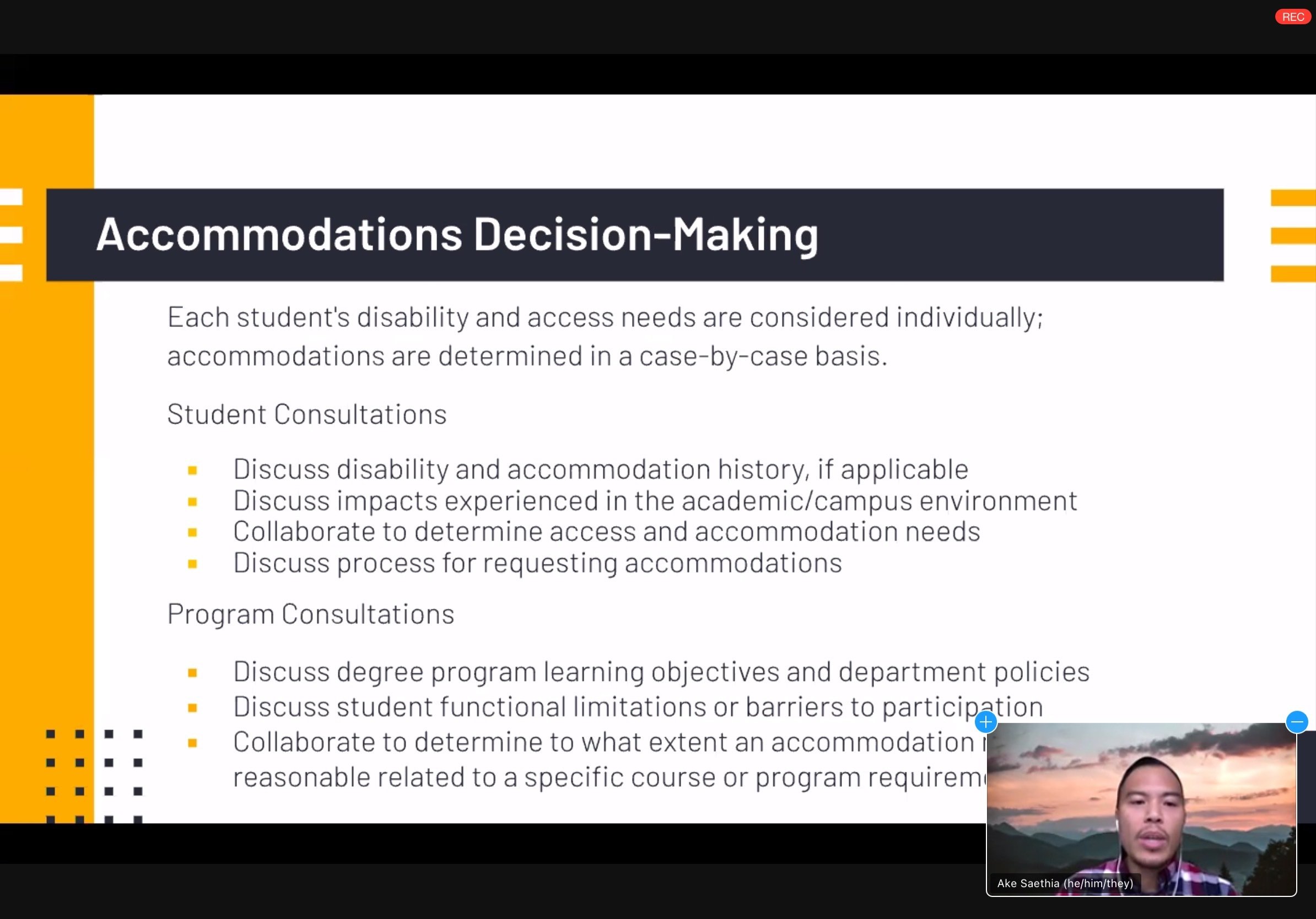Office of Accessible Education (OAE) representatives urged graduate students to pursue accommodations if they are in need during Wednesday afternoon’s installment of Grad 201, a series of workshops coordinated by the Graduate Life Office (GLO) designed to support graduate students in acclimating to Stanford.
“Disability is an important form of diversity,” OAE Disability Adviser Roselyn Thomas said. “Almost 20% of Stanford graduate students are registered with our office, so it’s a common form of diversity amongst the graduate student population.”
OAE defines disabilities as physical or mental impairments that act as a functional limitation and impair a student’s major life activities, Thomas said.
During the pandemic, more students have pursued milestone postponement due to their worsening mental health, according to Thomas. There have also been increased requests for emotional support animals because of students’ feelings of isolation.
Thomas added that the OAE saw shifts in student needs during virtual learning, including increased reports of disability-related issues attributed to increased screen time. As a result, OAE worked to provide Zoom-related accommodations such as real-time captioning and asking professors to provide an option to “dial in.”
While the OAE requires formal documentation of a disability diagnosis, both Satheia and Thomas encouraged students to reach out to explore options even if they were in the process of receiving documentation or unable to do so because of the pandemic.
OAE Disability Adviser Ake Satheia said that mental health conditions make up most of the disabilities of students affiliated with the OAE. Satheia explained that pursuant to federal legislation, the OAE seeks to provide individualized accommodations to ensure that students receive equal academic access.
Thomas added that the office believes “strongly that education is for everyone and that every student should be able to fully participate in their class in their classes and academic programs.”
According to Satheia, when a student first registers with OAE, a holistic consultation process enables advisors to understand the challenges the student is facing in regards to academics or housing, and then determine the most appropriate accommodations for the student’s specific needs.
Then, the OAE initiates a collaborative accommodations process with the student’s department, reconciling learning objectives and department policies with the student’s needs to support them in completing the program. Academic accommodations can be provided for all required parts of a student’s program, including laboratory work and internships, Thomas said.
For academic accommodations, Saethia said that OAE serves as a mediator for academic departments and students, conveying student needs and discussing possible accommodations while protecting their disability status, without disclosing diagnosis or documentation.
“Confidentiality is absolutely essential to OAE. We will never disclose what your disability situation or status is and will never share your documentation without your consent,” Satheia said. They also stressed that association with OAE wouldn’t be noted on transcripts or diplomas.
The only caveat would be when professors, academic advisers or Residential & Dining Enterprises need to know the way a student’s disability impacts them in order to provide accommodations.
“We never want to take action that students are going to feel is more harmful than it is helpful, so we try to be in conversation with our graduate students before we take any action or communicate with anybody,” Thomas said.
Thomas also said that international students are eligible for housing and academic-related accommodations and encouraged them to connect with the Bechtel International Center for answers about potential impact on immigration status.
GLO Assistant Dean of Students Chidel Onuegbu said that she didn’t want international students to avoid seeking help because of full-time enrollment requirements. According to Onuegbu, OAE, Bechtel and GLO are prepared to work together to provide guidance and assistance in complex cases.
“If there’s one takeaway that I want to emphasize today it’s really the fact that people don’t have to struggle in silence or alone,” Onuegbo said. “There are systems in place, offices, staff that are here to help you.”
Contact Kaushikee Nayudu at knayudu ‘at’ stanford.edu.
